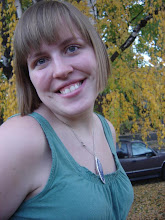Clearly I haven’t been doing such a great job with my blog. I really do intend to continue writing. I think I will be crazy busy soon, but there are things I still want to explore.
For one of my classes, a first year transition seminar, I’ve been asked to write weekly journal articles. My journals are emailed to my professor, and don’t have to take a specific direction, or be a prescribed length. What they are supposed to be is a reflection on student experiences, things I’ve observed on campus, or even reactions to articles I’ve read. So it occurs to me (actually it occurred to MoM) that I should go ahead and post these journals here. Because what does that assignment sound like, if not a blog?
So here comes my first journal.
I’ve been thinking a lot recently about the assumptions that people make on a college campus. I am only one year out of college. I am 23 years old, and I look young. I assume most people who see me on campus think I am an undergrad. I think this is an issue a lot of young people deal with going into student affairs: people assume we are students. And we are, but we are graduate students, on a professional track. And currently I feel like I’m more on the professional side than the student side.
Yet people make assumptions. I was at the OSU bookstore a few weeks ago buying books. My visit coincided with freshmen move in, and the bookstore was packed, yet the line moved very quickly because every student had extra people with them. I was alone and the cashier asked where my own entourage was. I told her I was a grad student, and she said, “Oh, so you’ve been through this before.” And I have, but not on this campus. Here, I am honestly just as lost as the undergrads with their parents. The assumption she made here may be wrong, but it was reasonable and safe. It did no harm to either of us and had no lasting consequences.
While I started talking about other peoples assumptions of me, I’m not innocent in all of this. I’ve been making some assumptions of my own. We all do. But I've also foun some situations are equalizing. At Dixon Rec on the elliptical machine, there is nothing to distinguish me from anyone else. It is an equalizer of sorts. The only things that signify status are outward appearance and particular exercise gear.
Yet assumptions can be dangerous. You never know who is in your vicinity. Two women in my cohort work in conduct. Recently we were at a football game there were students in front of us passing a flask back and forth. While the women work in conduct, and are only responsible after the student is in trouble (and honestly, neither of them actually saw the flask) these students made a call that the student section at the football game was a “safe” place to do this. Yet they had no idea who was behind them. People make assumptions all the time based on appearances. It seems that these assumptions need to be tempered by a little practicality.
Another young woman in CSSA works with sorority women. At the new student picnic she was at the Greek table wearing the same t shirt the sorority women were wearing. And students kept coming up and asking what activities her sorority takes part in, ect. And while she was in a sorority, it wasn’t here at OSU. She is the adviser, not an undergrad. And while that is a reasonable mistake on the part of the students and again causes no harm, it is still an assumption.
This is something I think most of us will deal with in student affairs for years to come. We will teach people older than we are, supervise those who are only months or years younger. This creates confusion for everyone involved. How do we balance the professional and the scholarly? Or balance student affairs professional with the friend?
Students often seem blissfully aware of some of these issues. The fact that I may not be in their radar at all doesn’t matter. While I know this reflection is intended to examine the mid set of today’s students, it somehow feels right to start with me. Where does my presence fit into the mindset of student? I wonder if these assumptions I’ve examined serve to help one make sense of the world. The world would be a truly confusing place if you had no ability to make patterns out of it. The danger is simply in letting assumptions take the place of real knowledge, both for me, and for the undergraduates in this scenario.
Subscribe to:
Post Comments (Atom)

No comments:
Post a Comment